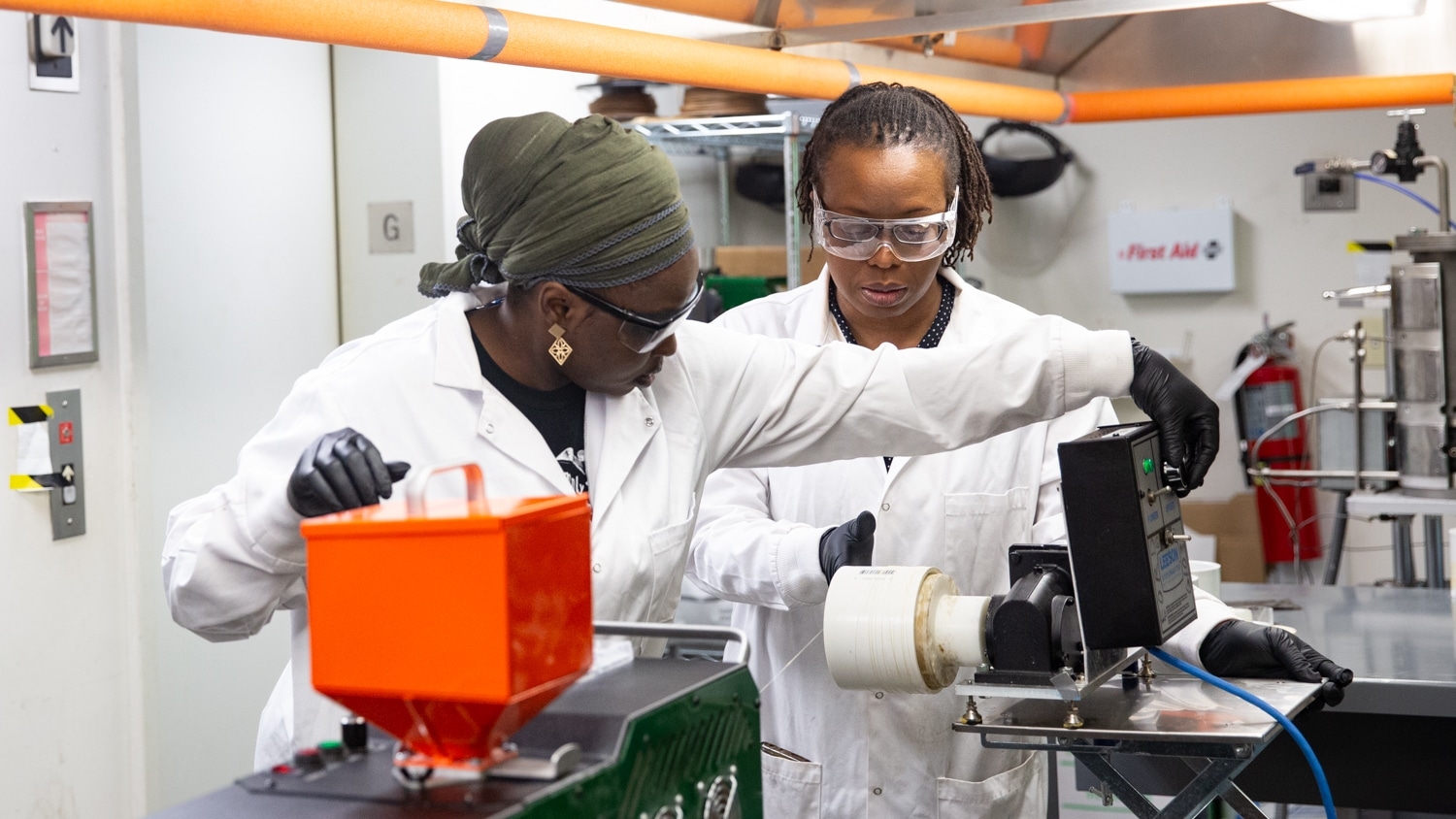College of Engineering enhances its commitment to diversity, equity and inclusion

Just as much as the COVID-19 pandemic, protests over the killings of George Floyd, Breonna Taylor and other African Americans at the hands of police officers and the national reckoning over issues of race that have followed have been the story of 2020.
Leaders across the University and within the College of Engineering spoke out in late May, after Floyd’s death on May 25 in Minneapolis, Minn., led to protests around the country, including in downtown Raleigh, NC, just a couple of miles from the NC State campus.
Chancellor Randy Woodson, in a statement, condemned acts of racism, discrimination and violence and reaffirmed the University’s “responsibility to educate ourselves and those who pass through our doors to overcome ignorance, unite against intolerance, model inclusivity and advance the dignity and power of diversity.”
In a “personal statement” distributed in early June, Engineering Dean Dr. Louis Martin-Vega urged the entire College of Engineering community to “make it our highest priority to work as hard as we can to better understand the unfair realities and bias that are part of the daily life and experiences of our black and underrepresented minority brothers and sisters.”
Martin-Vega called on the College’s department and unit heads to “commit themselves in even greater and more purposeful ways to the sustained recruitment and retention of a much more diverse faculty and staff.” He asked the College’s leadership to “not just communicate more … but to listen more to their underrepresented and particularly African-American faculty and staff.”
Next Steps at NC State
Over the summer, the University assembled an interdisciplinary team to evaluate NC State’s policies, examine every opportunity to strengthen them against racism and discriminatory behavior, and modify them, where allowed by law, to bolster its commitment to diversity, equity and inclusion. Other steps included increasing NC State’s focus on fundraising for scholarships and programs that support the recruitment, access, success and well-being of students of color; providing support to NC State’s cultural centers; and enriching other campus programs that enhance the educational experience for students from underrepresented groups.
Beginning with the 2020-21 fiscal year, the University has incorporated diversity, equity and inclusion learning development requirements in all University staff work plans.
In June, the NC State Board of Trustees voted unanimously to remove the name Daniels Hall from one of the oldest engineering buildings on campus. The building had been named for Josephus Daniels, a Raleigh newspaper editor who, though a supporter of NC State, had strong ties to white supremacy and played a leading role in the 1898 Wilmington coup, also known as the Wilmington massacre.
Updates on NC State’s efforts can be found in the Diversity Portal at www.ncsu.edu/diversity.
College Commitments
The College has long been committed to providing an open, inclusive research and learning environment that is welcoming to all.
Since taking over as dean in 2006, Martin-Vega has been committed to building a more diverse student population as well as recruiting more women and minority faculty and staff members and elevating them to leadership positions within the College and within research centers led by its departments. While these efforts have resulted in significant increases in the number of women faculty members and students and greater diversity in our staff population, the College continues to work hard to increase the number of African-American and other underrepresented minority faculty members and students in its quest to assure that the College will achieve its potential as a premier college of engineering. Examples of efforts with these objectives in mind include:

Bottom, Left to Right, Dr. Joel Ducoste, Dr. Christine Grant
Led by Angelitha Daniel, the College’s Minority Engineering Programs (MEP) work to ensure a diverse engineering student body by providing community building and engagement, academic support and professional development through several activities to ensure an inclusive environment for students. MEP programs include an overnight recruiting weekend for admitted students in the spring and a Summer Transition Program that gives incoming first-year students a leg up on their academics and a chance to form bonds with others in the program. Throughout their undergrad years, students in MEP have access to a supportive community on campus and resources to help them be successful.
In addition to her leadership of the MEP program, Angelitha Daniel has also been named a special advisor to the dean for faculty and student diversity, equity and inclusion. Her advisory role also includes leading the development of a new Diversity and Inclusion Strategic Plan for the College of Engineering. In June, she invited Dr. Valeria Sinclair Chapman, a professor of political science and African-American studies and director of the Center for Research on Diversity and Inclusion at Purdue University, to lead an equity and inclusion training for the College’s executive committee.
Dr. Christine Grant, associate dean for faculty advancement, and her office have been critical in creating a more welcoming and supportive environment for the recruitment and retention of our women and underrepresented minority faculty members. Her leadership of the promotion and tenure process in the College together with the development and implementation of multiple initiatives for faculty development has resulted in a culture of inclusion that has enhanced the success of our entire faculty.
Dr. Doug Reeves, associate dean for graduate programs, and his office have also developed, implemented and received external funding for a number of initiatives for the recruitment and retention of minority Ph.D. students. These efforts are also centered on creating a more inclusive and supportive environment for incoming graduate students as well as providing the financial support necessary for their success. A recent award to Dr. Joel Ducoste as the PI of an NSF Bridge to the Doctorate grant is currently supporting 10 new underrepresented minority Ph.D. students in COE plus five more in the College of Sciences and is now a centerpiece of these efforts.
In 2019, the College was one of 74 colleges of engineering to receive a Bronze Award for the inaugural American Society for Engineering Education (ASEE) Diversity Recognition Program. This was the highest award category made available by ASEE during its inaugural year and required: signing and executing the ASEE Deans Diversity Pledge; having infrastructure to support diverse populations; having at least one K-12 or community college pipeline activity; implementing at least one additional program or initiative from a list of proven practices; and having a Diversity and Inclusion Plan that includes measurable goals designed to improve diversity. The College was also marked as an exemplar honoree by ASEE making it only one of 29 recipients in the inaugural group to receive this additional distinction.
Going forward, the College is committed to furthering its efforts at creating a just, open educational environment and contributing to broader change in our city, state and nation.
“While our country has made progress in providing greater opportunities for African Americans and other underrepresented minorities, it is abundantly clear that we have not made nearly as much progress as many of us would like to believe,” Martin-Vega said in his June statement. “My hope is, however, that the events of this time will compel and commit us and our country to such needed change.”
Return to contents or download the Fall/Winter 2020 NC State Engineering magazine (PDF, MB).
- Categories:


